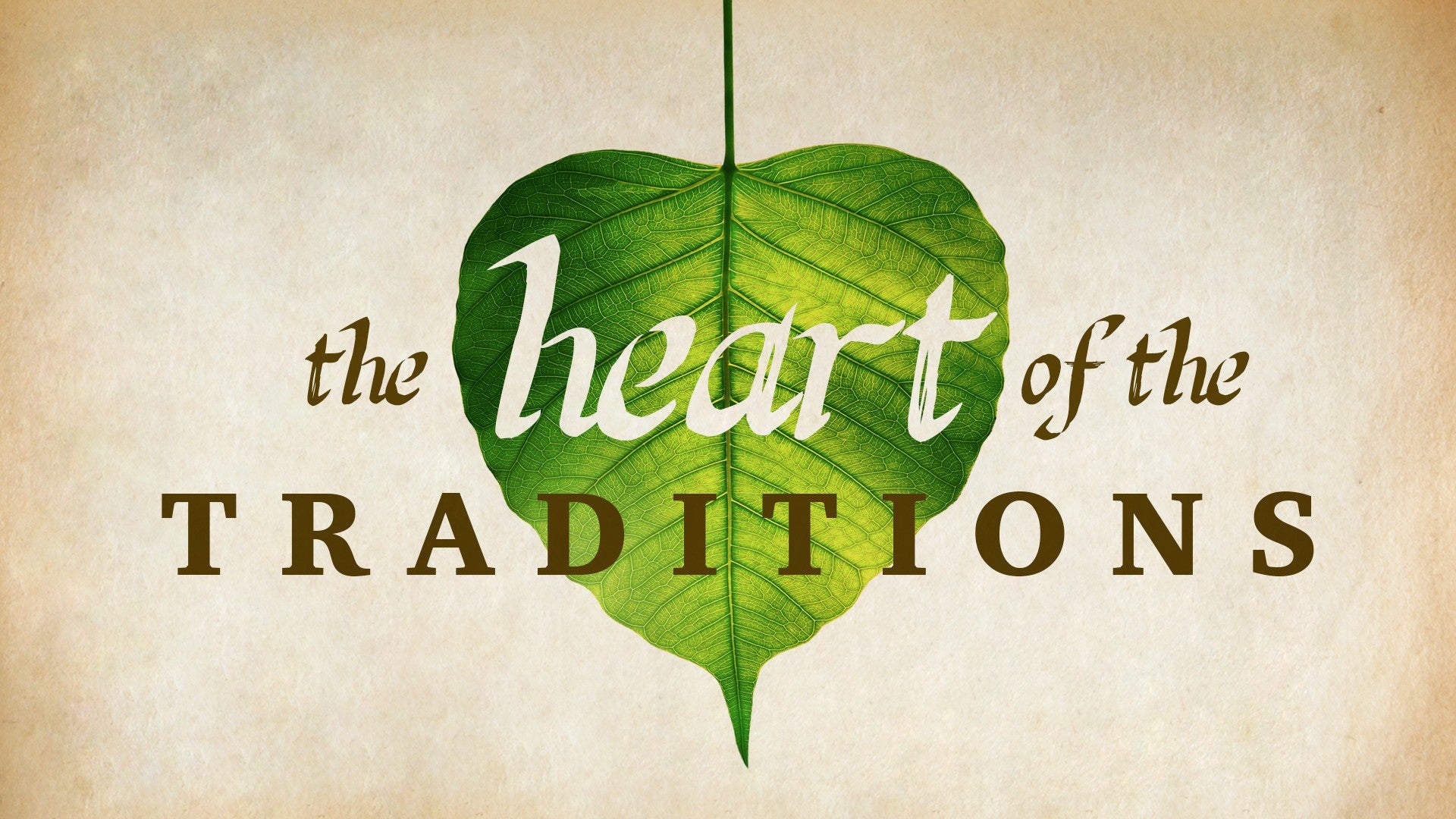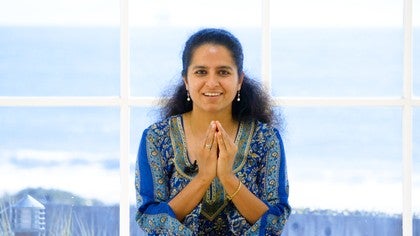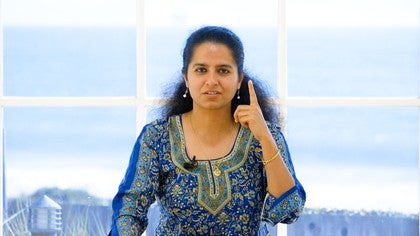Description
About This Video
Transcript
Read Full Transcript
In our last episode, we looked at the word surrender and tried to understand the different factors that are associated with this term. We realized that there is somebody or something that is surrendering to something else and a little bit of the invitation of why it is such an important idea in the yogic context. But one of the things that emerges from this discussion on surrender is this fact that whether one thinks that surrender is an appealing idea or not depends largely on the worldview that one has. The way we understand the world subconsciously informs a lot of what we do. But yet we don't necessarily pause and really take into consideration all the various subtle factors or the subtle inputs that finally result in determining how we see something, why we say something, what we do, how we do it, etc.
So it's a really good idea to just stop a little and use this opportunity to look at the ideas of surrender and how it relates to the worldview that we subscribe to in general. The question also is what is the storyline of our lives? Who are the characters? What are the plots? Where is it all going?
One of the questions that had emerged in our discussion on surrender was who is surrendering? Now getting a clearer idea around who is surrendering can again give us an insight into what surrender would imply. So like in many texts in the yogic tradition, one has to right at the beginning know what is in store if one has to take on any activity, otherwise why begin that activity at all? One of the two streams that I was talking about is that of the Darwinian notion of who we are. In the Darwinian notion, we are human beings who have evolved from animal states and one of the key factors that decided who continued or who survived was the notion of the survival of the fittest.
So you had to adapt to the situation, one had to fight for one's survival and that entity is what continued in the cycle of evolution, in the chain of evolution. Now if that is the case, if one believes that survival for the fittest is the driving impulse of our existence, then it seems to represent itself in the idea of I am the best, I have to live, all of that and there is this need to assert one's individuality in every context and in this situation, if someone was to come and tell you that surrender is a very important practice in knowing yourself, the individual would completely trash you literally because to a person who is convinced that the development of the ego being is the only way of security, of continuity, of survival. Any suggestion of surrendering, of letting go would imply immediately that it is scary, it is threatening, it is undermining the freedom of the individual to do whatever you want to do because if I have to surrender my will, then I am giving my authority to somebody else to dictate terms to me and what I should be doing and therefore the idea of surrender would be perceived as a threat to my well-being, historically also there are many instances of dictators who have taken advantage of this experience of surrender and as a result there is a strengthening of the danger that this term seems to offer. So if surrender was proposed to such an individual, the answer would be no way, right? Now let's look at another possible understanding of who we are and what we are doing in this world and this position is that of the yogic tradition.
So within the yogic tradition, many people engaged with this question of who really are we because what was evident to them is that every life or every human life is like a chapter written in a larger story, that chapter starts with the birth and ends with death. So a very pertinent question in this context would be what is the meaning of this chapter? Is it just by chance or does it have a connection with something that is there before and something that might be there afterwards and therefore some people dedicated a lot of their time and energy in trying to arrive at the essence of this meaning of their existence and try and understand their role in the larger plot of the story of creation? But in order to do that, it would imply that they would need to try and understand the intention of the author's writing. So a question that emerges is that is it possible to do that?
Our lives are chapters in a larger story of creation. Is there a possibility of knowing our role in it? Is there a possibility of knowing the author's intention of the plot of this story? What do you think? In the yogic tradition, there is an assurance.
They say that if one really wants to know the plot, one can, through a certain process of stepping back, step out of one's own scene and look at the whole story. But that can only happen if we allow ourselves to shift perspectives. If we remain where we are, then we are nothing but the character in that chapter. But if one wants to know something more, then one has to for a moment leave the mask of that character, step out of the role and look at the whole drama that is unfolding in front of our eyes. To summarize what we have been talking about, these two worldviews at large, I'll end with an analogy.
Imagine a drop of water that was falling into the ocean. Now if that drop of water was falling into the ocean and wanted to retain its shape and its own form, it would believe or it would feel threatened by the immensity of this ocean around it. And that is a little similar to the idea of those who subscribe to the worldview of the Darwinian concept of evolution. If individuality is the only truth, then connecting to this, the vastness of the ocean is dangerous. And surrendering to that vastness is not desirable, whereas if one understood that one was nothing more but a drop of water in the ocean and allowed oneself to merge into that ocean, then the benefits are that one would become the ocean.
The experience of the ocean is much faster than the experience of that drop. That drop contains all the potential of the ocean, but it can only unleash it when it becomes the ocean. So which worldview do you subscribe to?
The Heart of the Traditions
Comments
You need to be a subscriber to post a comment.
Please Log In or Create an Account to start your free trial.















